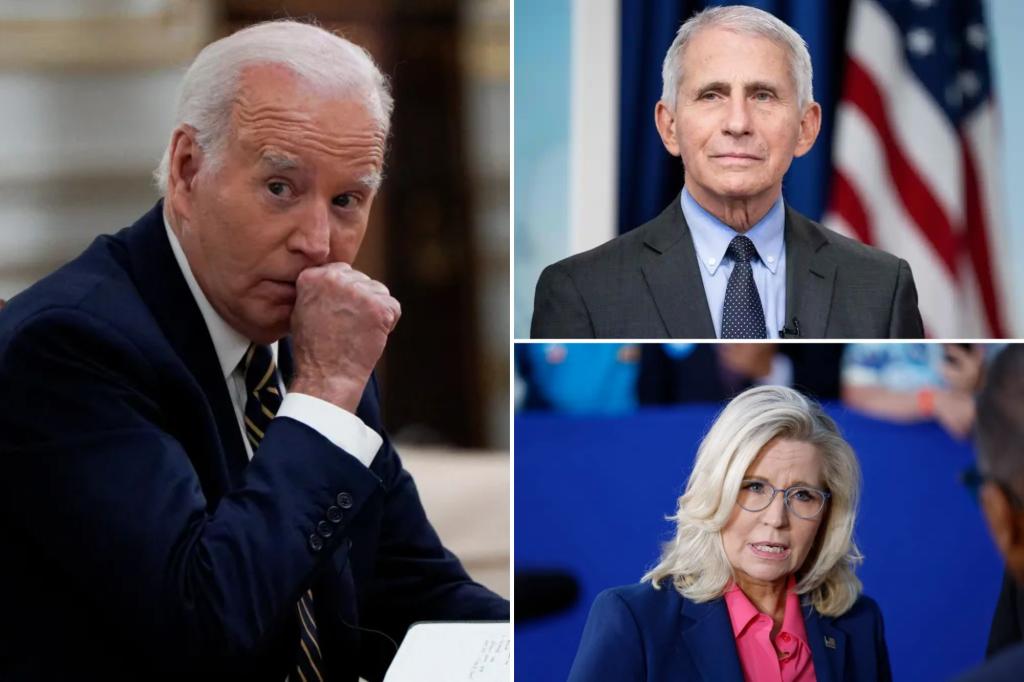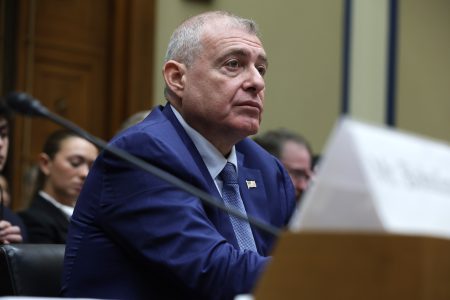As President Biden’s administration navigates a turbulent political landscape, discussions among his senior aides regarding pre-emptive pardons for various current and former government officials are emerging. This consideration appears to be a strategic move in anticipation of Donald Trump’s inauguration as President for a second term. Reports indicate that notable figures such as former Representative Liz Cheney, newly elected Senator Adam Schiff, and Dr. Anthony Fauci are among those who may required pardons in light of potential legal vulnerabilities stemming from their past actions. Cheney, prominent for her strong opposition against Trump, is best known for her pivotal role in the House of Representatives’ investigation into Trump’s involvement in the January 6 insurrection. Similarly, Schiff has been a vocal advocate against Trump, famously alleging wrongful collusion with Russia, which could politically affect him as Trump reclaims power.
The conversations surrounding these pardons have reportedly been led by White House counsel Ed Siskel and other key figures in Biden’s inner circle, including Chief of Staff Jeff Zients. However, President Biden himself is said to have been largely absent from these deliberations thus far. One significant concern for the administration is that granting blanket pardons to individuals who have not yet been charged with any crimes might suggest an inappropriate use of presidential power. Additionally, White House officials are grappling with the possibility that some potential recipients of these pardons may not accept them, further complicating the situation.
These discussions have been spurred by pressure from congressional Democrats, reflecting fears that Trump may pursue criminal investigations against his political adversaries once he takes office. This tension parallels Trump’s past declarations during his campaign, where he insisted that he was not interested in engaging in acts of political retribution. He even expressed that the country desires a different approach, highlighting during interviews that pursuing cases against former political rivals may not be what citizens expect from a returning president. Trump’s stated resistance to prosecuting figures like Hillary Clinton, alongside the insistence that any investigations against Biden or his family would not be pursued, adds layers of complexity to this evolving political scenario.
In striking contrast to the discussions surrounding potential future pardons, President Biden recently granted his son Hunter Biden a sweeping pardon that absolves him of various past offenses. Hunter found himself in serious legal trouble, having pleaded guilty to multiple charges related to unpaid taxes and illegal firearm possession. Originally, the White House had maintained that Hunter would not receive clemency; this sudden shift to grant a pardon seems indicative of Biden’s belief that his son was subjected to unfair scrutiny from the Justice Department. This development has stirred conversations about the implications of such a pardon within the broader context of the Biden administration’s handling of justice and ethics.
The political ramifications of these pre-emptive pardons cannot be understated, especially in light of the contentious atmosphere surrounding Trump’s potential return to the White House. While efforts to secure pardons are seated in concerns regarding the administration’s political rivals under a hypothetical Trump presidency, they also raise a wider discussion about the misuse of presidential powers and whether such actions will set a troubling precedent. The administration could face criticism from various quarters, including legal and ethical concerns about extending pardons to individuals under political motives, thereby influencing perceptions of governmental integrity.
As the landscape continues to shift in anticipation of Trump’s administration, the decision-making processes for Biden and his aides regarding pardons may significantly shape the future of political accountability and justice in America. The juxtaposition of defending the actions of public officials while managing allegations and potential legal ramifications from an incoming administration invites scrutiny not only from political observers but also the general public. This moment in American politics symbolizes broader themes of loyalty, accountability, and the delicate balance of power, providing a critical reflection of how emerging political dynamics may redefine traditional notions of presidential authority in the face of partisanship.










